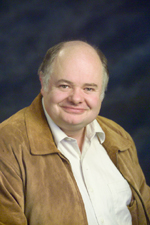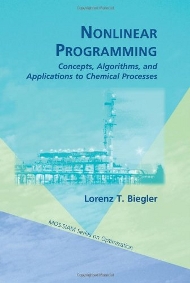
Lorenz T. Biegler
Covestro University Professor of Chemical Engineering
 |
Office: Doherty Hall 4210B Phone: (412) 268-2232 Fax: (412) 268-7139 Email:  |
Research Interests
Professor Biegler’s research projects center on the development and application of concepts, algorithms and applications of optimization and numerical methods for process design, analysis, operations and control. Topics in this area include:
Advanced algorithms for flowsheet simulation, optimization, and sensitivity analysis.
The focus of this topic is on the development of numerical methods for simulation and optimization of challenging process applications. This work includes the development of interior point and active set algorithms for non-linear programming and nonlinear complementarity problems, as well as efficient decomposition strategies for these problems. These algorithms form the core solvers for many areas in process design, control and operations. Emphasis is on efficient methods for large-scale optimization problems that arise in chemical engineering applications and energy systems.
Development of large-scale nonlinear programming methods for optimization of systems of differential and algebraic equations (DAEs).
Projects include analysis of stability and accuracy for approximate DAE solutions, algorithms for optimal control problems, and methods for large-scale nonlinear programming. These problem types are addressed through large-scale nonlinear programming formulations that can be solved efficiently even for large-scale systems. Applications include batch processes, fuel cells, complex dynamic separations, biological fermentations and polymerization reactors.
Real-time algorithms for nonlinear estimation, control and optimization.
These methods include the application of maximum likelihood and optimization concepts for parameter estimation, data reconciliation and gross error detection for steady and dynamic problems. In addition, based on fast sensitivity-based decompositions, efficient optimization strategies are being implemented for nonlinear control and real-time optimization, and demonstrated on large-scale chemical and energy processes.
Design and optimization of processes based on detailed PDE-based models.
Optimization applications include periodic adsorption processes such as pressure swing adsorption, simulated moving beds, complex, multi-phase reactors and computational fluid dynamics models that are spatially distributed and may also have dynamics components. Challenging applications arise in CO2 capture and energy network and production systems.
Book: Nonlinear Programming: Concepts, Algorithms and Applications to Chemical Engineering.
The book addresses modern nonlinear programming (NLP) concepts and algorithms, especially as they apply to challenging applications in chemical process engineering. It provides a firm grounding in fundamental NLP properties and algorithms, and relates them to real-world problem classes in process optimization, thus making the material understandable and useful to chemical engineers and experts in mathematical optimization. More information on the book can be found here or click on the image below. Comments and feedback are always welcome. A list of errata can be found here.

Questions about the site? Contact: Sakshi Naik (ssnaik@andrew.cmu.edu)